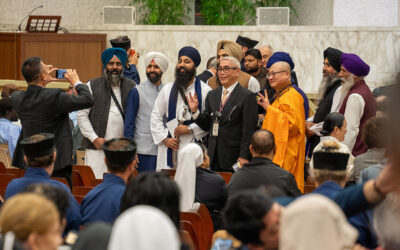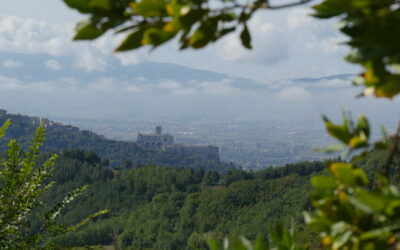 Chiara and her first companions asked themselves how they could show God that he was truly the centre of their lives. They wondered how how they could put into practice their newly found ideal: God-Love. It soon appeared obvious to them that they should return God’s love for them. Their life would no longer have any sense if it were not “a small flame of this infinite brazier burning with the flame of divine Love: love responding to Love”. And it seemed such a great and sublime gift to be able to love God that they often said: “We shouldn’t say “we must love God” but “Oh, to be able to love you, Lord! To be able to love you with this tiny heart!” They recalled a sentence from the Gospel seemed to leave no escape for anyone who wanted to live a Christian life: “Not everyone who says to me, ‘Lord, Lord,’ will enter the kingdom of heaven, but only the one who does the will of my Father who is in heaven” (Mt 17:21). Therefore, doing the will of God was their grand opportunity to love God. And God and his will coincided.Chiara wrote: “God was like the sun. And a ray of this sun was reaching out to each one of us, the divine will for me, for my friends, for everyone. There is a single sun, different rays, but always ‘rays of sun’. A single will of God different for each person, but always will of God. Our task was to walk within our ray without ever departing from it. And we had to follow along this ray in the time that was allotted us. No wandering into the past or fantasizing about a future. It was better to abandon the past to the mercy of God, since it was no longer in our possession; and the future would only be lived once it became present.
Chiara and her first companions asked themselves how they could show God that he was truly the centre of their lives. They wondered how how they could put into practice their newly found ideal: God-Love. It soon appeared obvious to them that they should return God’s love for them. Their life would no longer have any sense if it were not “a small flame of this infinite brazier burning with the flame of divine Love: love responding to Love”. And it seemed such a great and sublime gift to be able to love God that they often said: “We shouldn’t say “we must love God” but “Oh, to be able to love you, Lord! To be able to love you with this tiny heart!” They recalled a sentence from the Gospel seemed to leave no escape for anyone who wanted to live a Christian life: “Not everyone who says to me, ‘Lord, Lord,’ will enter the kingdom of heaven, but only the one who does the will of my Father who is in heaven” (Mt 17:21). Therefore, doing the will of God was their grand opportunity to love God. And God and his will coincided.Chiara wrote: “God was like the sun. And a ray of this sun was reaching out to each one of us, the divine will for me, for my friends, for everyone. There is a single sun, different rays, but always ‘rays of sun’. A single will of God different for each person, but always will of God. Our task was to walk within our ray without ever departing from it. And we had to follow along this ray in the time that was allotted us. No wandering into the past or fantasizing about a future. It was better to abandon the past to the mercy of God, since it was no longer in our possession; and the future would only be lived once it became present.

Chiara Lubich (centre) in the mountains of Tonadico with her first companions




0 Comments